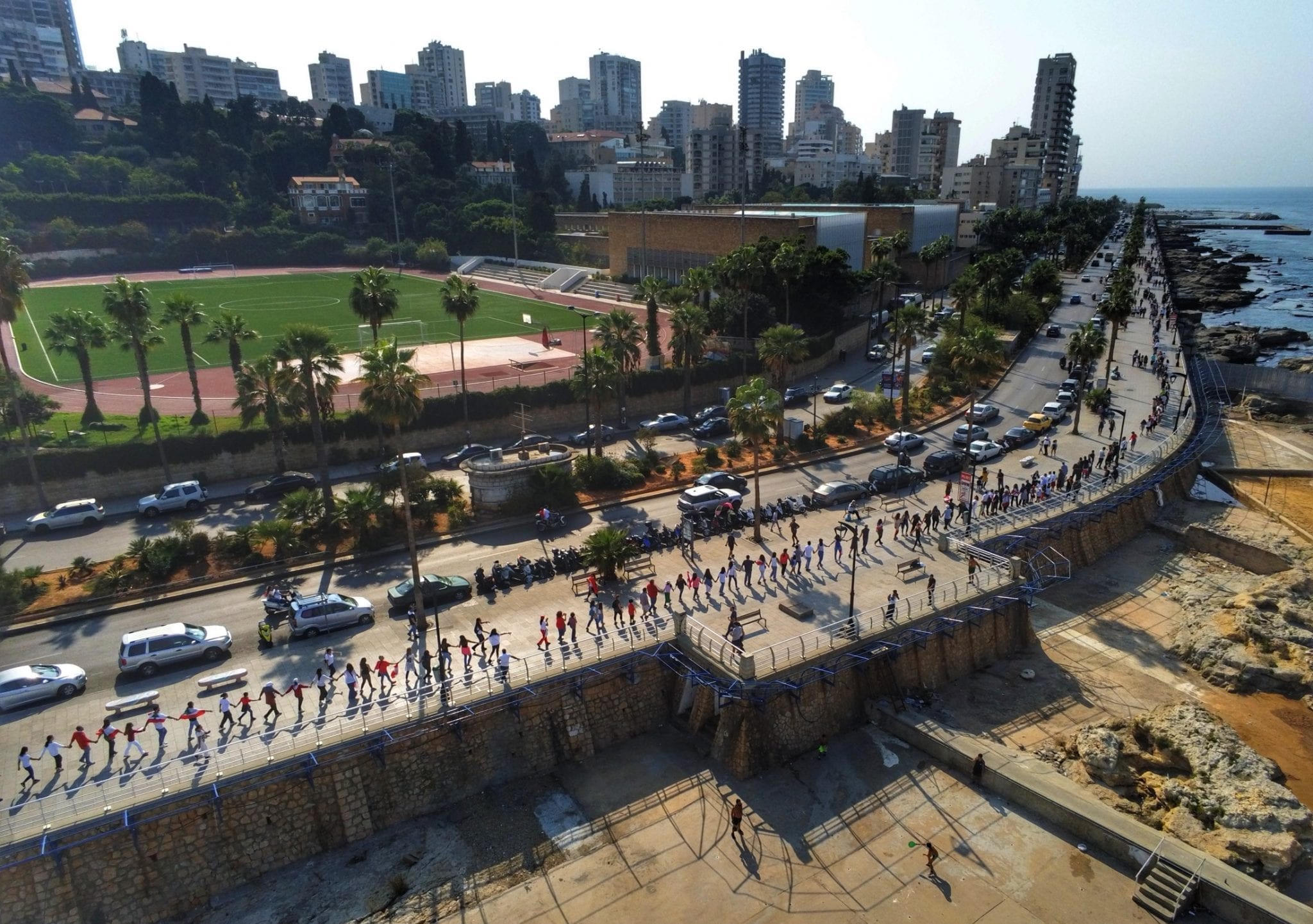Lebanon: Change Is in the Air
Sparked by a proposed daily tax of 20 cents for WhatsApp calls, the demonstrations in Lebanon reveal deeper issues plaguing Lebanon. The lack of strategic government planning, recurrent nepotism, deteriorating economic conditions, and environmental negligence have all accumulated leading to widespread public anger. The following testimonies give insights into a country that is looking for existential answers with the next generation for a more sustainable future. On 29 October, the Lebanese Prime Minister resigned.
Said Abou Kharroub – Beirut: “Thawra” is Arabic for “revolution”
This unprecedented and impulsive massive demonstration (also called thawra or ‘revolution’ here) is not taking comforting tones. The ongoing questions about the prospects for the local situation seem to be isolated from the major realities of the region.
Before being appointed Foreign Minister, Gebran Bassil served as Lebanon’s Minister of Energy and Water. Back in 2012, people used the popular hashtag #BlameBassil to air their grievances about the country’s shortage of water and daily electricity cuts. (Bassil is also known for his anti-refugee rhetoric, pledging to deport Syrian refugees back across the border.) The frustrations being voiced today emanate from the systematic repetition of little and big abuses of power and chronic incompetence of governance.

In October 2019, the confusion of the ruling coalition in front of the street ‘stubbornness’ was reflected in the inability to unify the vision of how to provide enough ‘prices’ to quell the anger of the demonstrators and avoid the downfall of the confessional system. It is not clear whether the Lebanese Government will fully resign or remove some members such as Gebran Bassil. It is obvious that sacrificing the Gebran Bassil cabinet will lead to chaos and civil unrest, as other corrupted ministers from the Amal Movement, Hezbollah, and the Future Group still also persist in power. As of 28 October, 12 days have passed in our revolution. We have had a symbolic human chain linking an estimated 175,000 people from the northern city of Trablous (Tripoli) to the southern city of Tyre (Sour), but the number of protestors is now decreasing. The Lebanese Government is still standing. And the international community is silent.
No clear future is visible!
Adib Dada – All means All: the Lebanese Revolution, a crisis of consciousness
Today is Day 12 of the Lebanese Revolution, which is unlike any other this country has seen since its independence in 1943, with almost 2 million Lebanese across regions and beliefs coming together to denounce the system in power.
A confessional system that leads to corruption and impunity on an outstanding scale. “All means All” refers to our primary demand that the whole government resigns, to assume our collective responsibility and power to dismantle the current regime and build a new one based on principles of unity and respect.
We notice that environmental issues, while rarely appearing center-stage, are important precursors to the revolution once you dig a little deeper. Government corruption has led to a gross mismanagement of waste, culminating in the 2015 ‘You Stink’ movement denouncing the government for its criminal laissez-faire which led all regions in Lebanon to be buried under mounds of garbage. These finally largely ended up being burned in open-air dumps and otherwise used to landfill the Mediterranean Sea.
The desperately crumbling and heavily indebted energy sector does not provide continuous electricity and is intent on buying high-cost energy from abroad instead of deploying more efficient renewable energy infrastructure. While Lebanon is the richest country in water resources in the region, leaky infrastructure, a mafia of private water providers, and ill-suited dams have resulted in the pollution and loss of our precious water. Citizens have to rely on private water tanks charging exorbitant prices.
Having potentially hit rock-bottom, we see now a revolution of the people. Desperate, passionate, engaged people across the whole political and religious spectrum demanding their basic right to food, energy, clean air, access to public space and opportunities for their young to thrive in their own country.
The massive forests fires we witnessed last month were a precursor to the revolution, as they clearly showed the lack of interest of the government in tackling the crisis, let alone preventing it. Their criminal corruption was cast in broad daylight, as the officials were not able to deploy any single one of the fire-fighting helicopters donated to
For more on movements around the Mediterranean, visit AMWAJ forum – a platform for building the energy and water community.